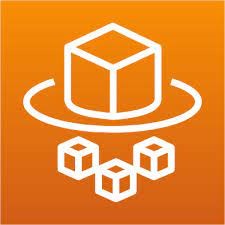
Top Cyber Security Trends: What Every Organization Must Know
Top Cyber Security Trends: What Every Organization Must Know Introduction In an era marked by digital transformation, remote workforces, and rapidly evolving threat landscapes,
Limited-Time Offer! Get an exclusive 40% OFF on IPSpecialist Premium Monthly & Annual Plans. Use Promo Code: UPSKILLNOW at checkout.

Top Cyber Security Trends: What Every Organization Must Know Introduction In an era marked by digital transformation, remote workforces, and rapidly evolving threat landscapes,

Zero Trust vs. SASE: Everything You Need to Know Introduction As the cyber world continues to change, companies need to look beyond conventional security

Cloud Security Posture Management (CSPM) Introduction In the era of digital transformation, organizations are moving to the cloud at an unprecedented pace. While the
Table of Contents
 Introduction
IntroductionAmazon Web Services (AWS) has emerged as one of the most popular and dependable cloud computing services. Its wide array of features and flexibility makes it easy to see why businesses have been drawn to AWS. One such feature is AWS Fargate, an innovative platform that provides an easier way to run containers on AWS.
AWS Fargate is a container orchestration service that Amazon Web Services (AWS) provides. It is a fully managed service that allows users to run containerized applications without managing the underlying infrastructure. Fargate handles the provisioning and scaling of the necessary resources, such as computing and memory, for the containers. This allows developers to focus on writing and deploying their applications rather than managing the infrastructure. This article covers detailed knowledge of AWS Fargate.
AWS Fargate has several features that make it a powerful tool for running containerized applications:
There are numerous advantages to using AWS Fargate. It eliminates the need for manual configuration and maintenance of server infrastructure. This means developers can spend less time worrying about setting up servers and more time developing their applications. In addition, it is much cheaper than traditional server hosting solutions since there is no need to purchase hardware or pay for maintenance costs associated with physical servers.
Since all the applications are stored in the cloud, they can be easily accessed from anywhere in the world with an internet connection. Also, since it integrates seamlessly with other Amazon Web Services such as EC2 (Elastic Compute Cloud) and S3 (Simple Storage Service), developers have access to additional features like scalability and high availability that make deploying applications even easier.
A logical collection of jobs or services is referred to as an Amazon ECS cluster. Clusters are a tool you can employ to separate your applications. Your cluster resources are also managed by Fargate when your jobs are executed on it.
One or more containers that make up your application are described in a text file called a task definition. JSON is the format used. It can be used to describe up to ten containers in total. The task specification serves as a design guide for your applications. For your application, it specifies the various settings. You can use it, for example, to specify the operating system’s settings, the containers to use, the ports to open for your application, and the data volumes to use with the task’s containers. The requirements of your particular application will determine the precise parameters accessible for your task definition.
Within a cluster, a task is the instantiation of a task definition. The number of tasks that will operate on your cluster can be specified once you build a task description for your application within Amazon ECS. You have the option of running a task independently or as a component of a service.
You can execute and maintain the desired number of jobs in an Amazon ECS cluster at once using an Amazon ECS service. The Amazon ECS service scheduler launches a new instance according to your task specification if any of your tasks fail or halt for any reason. To keep the desired number of jobs in the service, it performs this to replace it.
AWS Fargate is a container orchestration service that allows users to run and manage containers without the underlying infrastructure. Applications built on AWS Fargate can run on a fully managed infrastructure, eliminating the need for users to provision and manage servers.
Some examples of applications that can be built on AWS Fargate include:
AWS Fargate is Amazon Web Services serverless compute engine for running containers. It provides developers with on-demand access to compute resources, allowing them to deploy and scale applications quickly and easily. However, while it has many advantages, it also has a few significant limitations that should be considered when determining whether or not to use it. Let’s take a look at the main limitations of AWS Fargate.
One of the major drawbacks of using AWS Fargate is its cost structure. While there are no upfront costs or long-term commitments, you still pay for each minute your container runs on the service. This can add up quickly if you have multiple containers running for long periods and if you need to scale your applications frequently or rapidly. Therefore, it is important to carefully consider your usage patterns before using Fargate so that you only spend the necessary on compute resources.
Another limitation of AWS Fargate is scalability. While the service does allow you to scale your applications quickly and easily, it does not provide a way to manage the number of instances your application needs at any given time. Therefore, if you need to increase or decrease the number of instances based on demand, you will need to do this manually to avoid overspending on compute resources. Additionally, since all instances are managed by AWS Fargate rather than directly by you, there may be some latency in responding to changes in demand which could impact performance if not properly managed.
The amount that containerized applications use in terms of vCPU and memory is what AWS charges for Fargate. Where the service is offered will affect the price. A one-minute minimum fee is required, and the service charges per second.
Competing container platforms like Microsoft Azure Container Instances and Google Kubernetes Engine also abstract away infrastructure administration.
It is difficult to predict the future demand for AWS Fargate with certainty. However, Fargate is a relatively new service that has been well-received by many users, so demand will likely continue to grow in the coming years.
Additionally, the increasing popularity of containerization and the need for a managed container orchestration service like Fargate may drive demand. It is also worth noting that as more businesses adopt a cloud-first strategy, demand for Fargate and other AWS services is expected to rise.
AWS Fargate is a powerful and convenient service offered by Amazon Web Services (AWS) that allows developers to deploy and manage containers without managing the underlying infrastructure. Fargate eliminates the need for provisioning and scaling servers, making it easier for developers to focus on building and deploying their applications. It provides a fully managed service that can run various applications, including microservices architectures, batch processing, machine learning, AI, CI/CD pipeline, event-driven applications, and multi-cloud deployments. Fargate provides a high level of security and compliance features that make it suitable for enterprise-level applications.
© 2025 All rights reserved | Privacy Policy | Terms and Conditions | Sitemap | Cookie Policy




